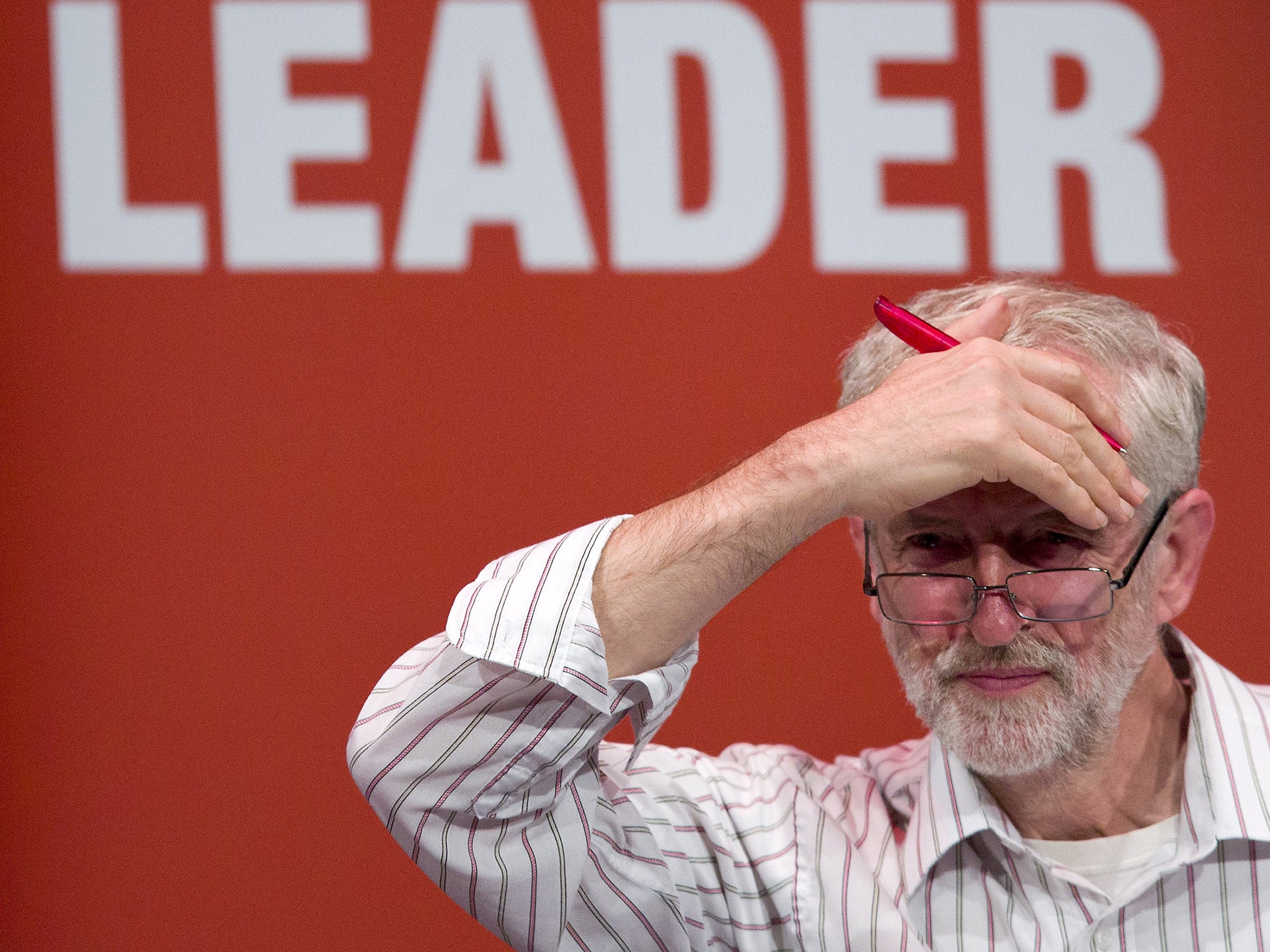I voted for Corbyn, but I feel conflicted about his victory. Where are all the women in politics?
Sexist attitudes put the best women off running for office, so no wonder we end up with more of the same in Westminster


Even on the eve of his victory, I feel I have to admit: I felt conflicted about voting for Jeremy Corbyn. It’s not that I don’t agree with his ideas, because I do. It’s not because I feel any personal distaste for him; on the contrary, I’ve felt truly inspired by his anti-elitism approach to the leadership contest. And it’s not that I believe he’s a terrible choice for the Labour party, either. I don’t swallow scaremongering from Blairites, so obsessed with the spectre of Michael Foot and the supposedly right-wing British public (who have, strangely enough, turned out in their thousands to Corbyn rallies up and down the country.)
None of the posturing from right-wing factions within the party concern me. Instead, I’m concerned for my gender: where on earth are the women?
Voting for another straight white man to lead a political party felt uncomfortable to me. I spend a lot of my time campaigning for the increased representation of women in politics, where inclusion of my gender tends to level out consistently at around 25 per cent (it currently stands at 29 per cent, the highest it’s ever been.) Naively, perhaps, I expected the Labour leadership contest to throw up someone inspiring, left-wing, radical and female who I could rally behind and champion in the media. When the best that Labour could scrape out of the barrel was Yvette Cooper and Liz Kendall, those expectations were roundly dashed.
Where exactly are the women in politics these days, and why are they often so shy to talk about women’s issues? When I say women’s issues, I don’t mean childcare, period pains or shopping. I mean pay gaps, quotas, all-women shortlists and positive discrimination. I mean unashamedly staking out one’s claim as a human being equal to a man and stating exactly what should be done to make sure women make up 50 per cent of Parliament, rather than less than a third. I mean being brave enough to face the inevitable backlash which will come when one says: yes, we do need to set numbers, to force sexist employers to take people they might not want, to make change happen in the name of equality even when misogynists resist it.
Instead, I’ve spent hours talking to the Liz Kendall campaign team in the last few weeks and failed to find evidence of even a single solid idea about how to tackle gender inequality. Meanwhile, Jeremy Corbyn committed himself to a 50/50 cabinet within days of becoming eligible to run for the leadership – closely followed by Andy Burnham.
The sad fact is that you can talk about sexism as a man and remain popular, whereas talk about it as a woman and you risk becoming immediately and irreversibly sidelined. Mentioning feminism publicly in your career – especially in politics – is becoming about as advisable as chairing an event about the imminent dangers of the Illuminati. While wearing those Christina Aguilera nineties-era leather chaps with the arse missing. And professing your admiration for the lifestyle of Hugh Hefner.
There are 191 female MPs in Westminster, out of a total of 650. On the world stage of women’s political inclusion, that puts us behind Uzbekistan, Kyrgyzstan, Croatia, Canada, Portugal, Macedonia, Belarus, Germany, Spain, Denmark, Belgium and many other of our European counterparts. The message is clear: what’s happening in UK politics isn’t good – or fast – enough. Only a tiny percentage of talented female politicians end up available to stand for leadership contests; inspirational candidates like Stella Creasy remain few and far between.
What’s causing this dearth of interesting female politicians at the top? It’s a combination of sexist social attitudes which put them off before they’ve begun (why doesn’t that old spinster Liz Kendall have a husband by now? Where’s her children and how can we trust her if she doesn’t have any? What about Yvette Cooper’s husband? What does he have to say about it? What’s Hillary Clinton wearing? Isn’t this one over here too young and sexy and probably blowing her boss for her job? Isn’t this other one too ugly and prudish and probably just bitter because nobody fancies her?) and a government-wide failure to action feminist policies which would make a genuine difference to women’s lives and careers.
By the time many female politicians reach the top, they’ve been scared out of and warned off championing women’s causes; they realise it could be seriously detrimental to their careers. They end up unwittingly smashing through the glass ceiling and pulling the ladder up after them. Meanwhile, the voting public are just as resistant as ever to backing a woman.
Yvette Cooper might have been brave enough to mention abortion clinics, but she failed to capture the imaginations of hordes of young girls who wanted a radical alternative. And though I voted Corbyn this time round, I sincerely hope there’s a female candidate I can cast my ballot in support of in a few years’ time. Because Labour’s consistent failure to produce a female leader is starting to become embarrassing.

Join our commenting forum
Join thought-provoking conversations, follow other Independent readers and see their replies